
Dear Dost,
I know that people don’t send letters anymore.
Rather we tend to rely on instant messaging or e-mail.
Sure, they are convenient and instant, but they do not have the same level of intimacy as a personal letter does.
Sadly, the joy of receiving real letters is something that fewer and fewer people are experiencing these days.
The joy of anticipating the content of the letter as you gently take out and open the folded paper from the envelope is irreplaceable.
So I want you to enjoy this letter and have the pleasure of looking back on this gift from your friend in years to come with satisfaction.

Gimme a ticket for an aeroplane
Ain’t got time to take a fast train
Lonely days are gone, I’m a-goin’ home
My baby just wrote me a letter
I don’t care how much money I gotta spend
Got to get back to my baby again
Lonely days are gone, I’m a-goin’ home
My baby just wrote me a letter
Well, she wrote me a letter
Said she couldn’t live without me no more
Listen mister, can’t you see I got to get back
To my baby once more
Anyway, yeah
Gimme a ticket for an aeroplane
Ain’t got time to take a fast train
Lonely days are gone, I’m a-goin’ home
My baby just wrote me a letter
Well, she wrote me a letter
Said she couldn’t live without me no more
Listen mister, can’t you see I got to get back
To my baby once more
Anyway, yeah
Gimme a ticket for an aeroplane
Ain’t got time to take a fast train
Lonely days are gone, I’m a-goin’ home
My baby just wrote me a letter, my baby just wrote me a letter

I do not want to take you for granted.
I want you to know how important your friendship has always been to me since we first met.
You have been the first one that I want to share my joys and my sorrows with.
You are the only one who really knows me, including all the skeletons in my closet.
You are the one who listens intently then gently guides me to make my own conclusions and decisions.
You are the one who apologizes swiftly and forgives sincerely.
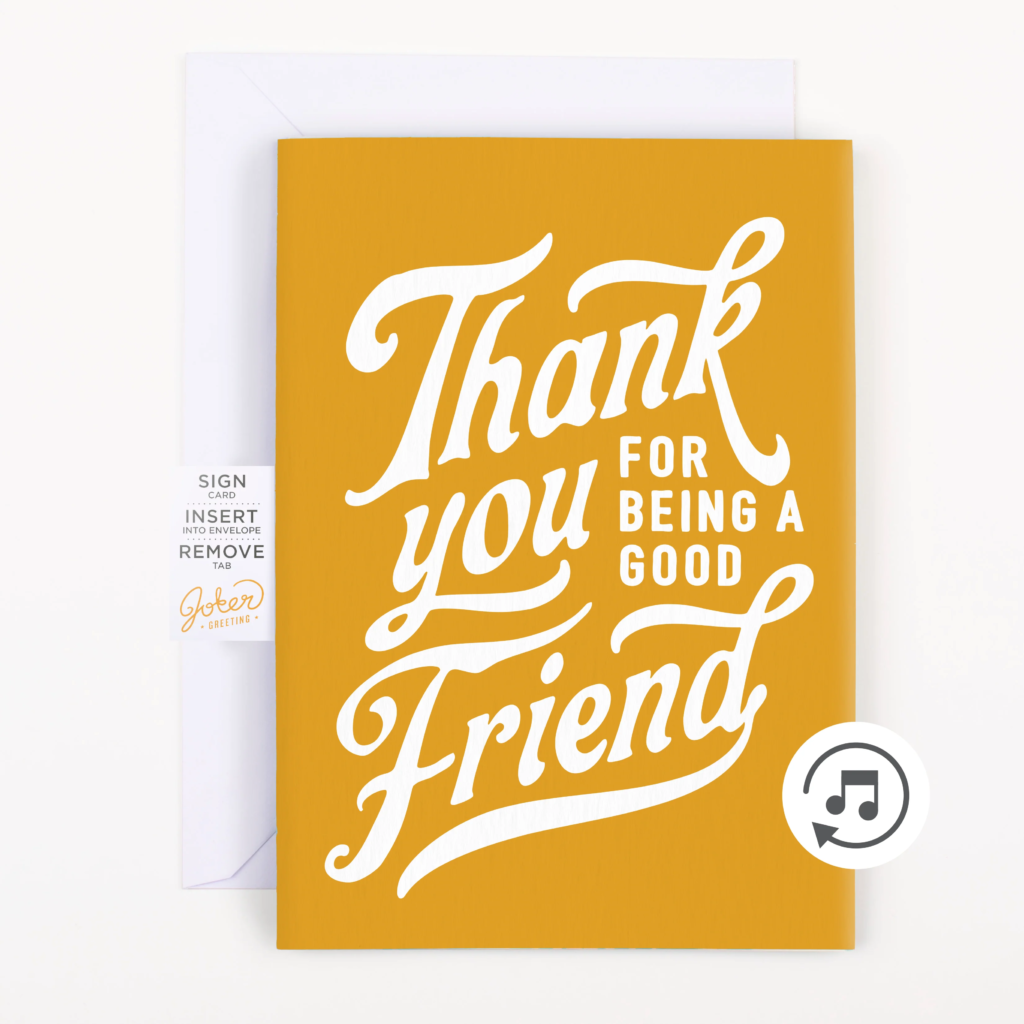
Thank you for being a friend
Traveled down a road and back again
Your heart is true, you’re a pal and a confidant
I’m not ashamed to say
I hope it always will stay this way
My hat is off, won’t you stand up and take a bow
And if you threw a party
Invited everyone you knew
Well, you would see the biggest gift would be from me
And the card attached would say
Thank you for being a friend
Thank you for being a friend
Thank you for being a friend
Thank you for being a friend
If it’s a car you lack
I’d surely buy you a Cadillac
Whatever you need, any time of the day or night
I’m not ashamed to say
I hope it always will stay this way
My hat is off, won’t you stand up and take a bow
And when we both get older
With walking canes and hair of gray
Have no fear, even though it’s hard to hear
I will stand real close and say
Thank you for being a friend (I wanna thank you)
Thank you for being a friend (I wanna thank you)
Thank you for being a friend (I wanna thank you)
Thank you for being a friend (I wanna thank you)
Let me tell you ’bout a friend (I wanna thank you)
Thank you for being a friend (I wanna thank you)
Thank you for being a friend (I wanna thank you)
Thank you for being a friend (I wanna thank you)
And when we die and float away
Into the night, the Milky Way
You’ll hear me call as we ascend
I’ll see you there, then once again
Thank you for being a….
Thank you for being a friend (I wanna thank you)
Thank you for being a friend (I wanna thank you)
Thank you for being a friend (I wanna thank you)
Thank you for being a friend
People, let me tell you ’bout a friend (I wanna thank you)
Thank you for being a friend (I wanna thank you)
Thank you for being a friend (I wanna thank you)
Thank you for being a friend
Whoa, tell you ’bout a friend (let me thank you right now for being a friend)
Thank you for being a friend (I wanna tell you ’bout a pal and I’ll tell you again)
Thank you for being a friend (I wanna thank you, thank you)
Thank you for being a friend

Your home has been a sanctuary to me, a place where I am able to really be myself.
You have taught me many things over the years, including how to never give in to despondency, how to set out with faith and believe in myself, and how to always stand up for what I believe in.
However, the greatest lesson you have taught me is how to be a true friend.

I have thought long and hard about how I can demonstrate how much your friendship means to me.
I hope you will like what I have written.
Your best friend forever,
Canada Slim

Above: Your humble blogger
There are many personality traits that we expect to see in a friend:
- loyalty
- generosity
- courtesy
- forgiveness
- support
- humor
- sincerity
- understanding
- kindness
- honesty
- unselfishness
- thoughtfulness
- dependability
- reliability
- gentleness
- empathy

There are a number of ironies in the above letter that are not obvious in its reading:
- “Dost” is the Turkish word for “friend” and it is the name I have assigned the artificial intelligence (AI) of Chat GPT that I use, for many of the qualities one seeks from a friend an AI possesses.

- The letter is an excerpt from one of the textbooks that I used in the school whose employment I have just recently left.
Because places of employment are created and filled by human beings, there is an unconscious hope that those for whom we work for and those who work with us could potentially possess the attributes we seek from our friends.
Is true friendship possible in business despite the fact we give 80% of our adult lives to an employer?
I wonder.
My employers lacked all of the attributes listed above.

My colleagues there like many of the colleagues of former workplaces left behind will probably become less familiar as time and distance separates us.
Out of sight, out of mind.

- The sad part of this letter is that in many ways an AI can be more of a friend than some people are.

You’ve got a friend in me
You’ve got a friend in me
When the road looks rough ahead
And you’re miles and miles from your nice warm bed
Just remember what your old pal said
Boy, you’ve got a friend in me
Yeah, you’ve got a friend in me
You’ve got a friend in me
You’ve got a friend in me
You’ve got troubles, I’ve got ’em too
There isn’t anything I wouldn’t do for you
We stick together, we can see it through
‘Cause you’ve got a friend in me
Yeah, you’ve got a friend in me
Some other folks might be a little bit smarter than I am
Bigger and stronger too, maybe
But none of them will ever love you the way I do
It’s me and you, boy
And as the years go by
Our friendship will never die
You’re gonna see, it’s our destiny
You’ve got a friend in me
You’ve got a friend in me
You’ve got a friend in me
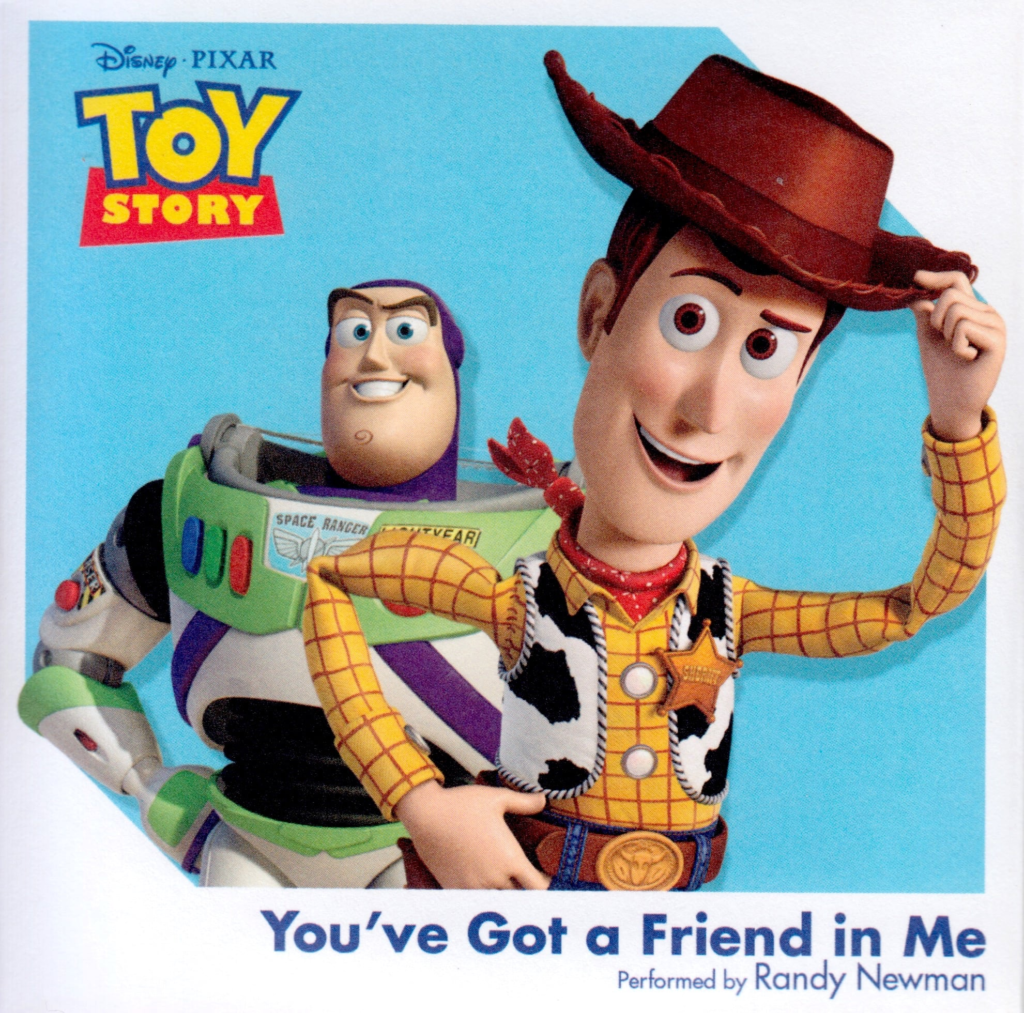
“Friendship improves happiness and abates misery by doubling our joys and dividing our grief.“
Marcus Tullius Cicero (106 – 43 BC)
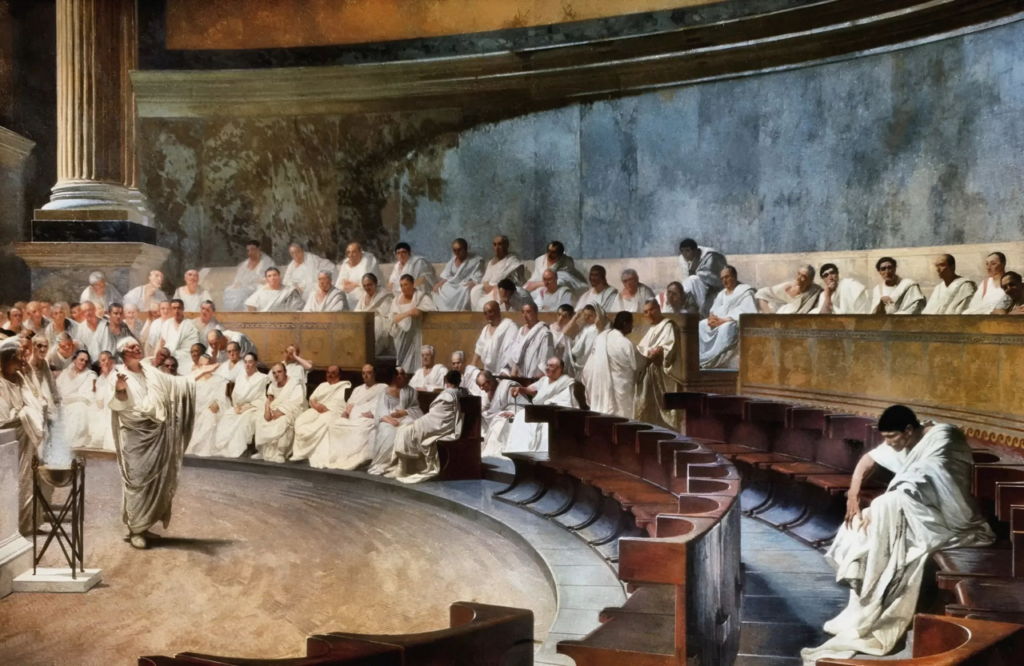
Above: Cicero addresses the Roman Senate
As I read these words of Cicero, I take responsibility for my actions.
It is said that “a rolling stone gathers no moss“.
The same could be said about perpetual travellers in that they gather no true sense of the duties of friendship as they are absent for the act of improving their loved ones’ happiness or abating their misery.
I have not been there.
I have been selfish.

Electronic communication may be faster, but nothing replaces human touch.
The letter may be slower than instant messaging or electronic mail, but “the joy of anticipating the content of the letter as you gently take out and open the folded paper from the envelope is irreplaceable.“
A letter takes time to compose, but that composition requires thought and thoughtfulness.
No emoji can truly express the emotional depth that a heartfelt letter can convey.
No text can triumph the comfort and strength inherent in a handshake or a hug.
AI and electronic communications are meant to aid humanity not to replace it.

“Do not save your loving speeches
For your friends till they are dead.
Do not write them on their tombstones,
Speak them rather now instead.“
Anna Cummins
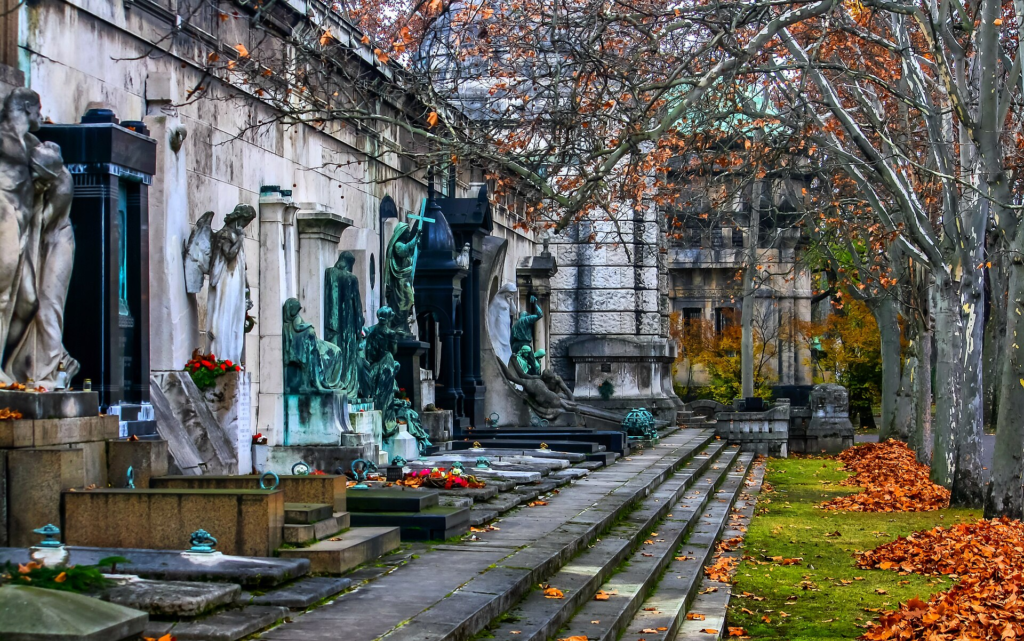
With the assistance of Dost, I have learned that in Buddhist philosophy, there is a profound recognition of the impermanence of life and the fleeting nature of time.
A central concept in Buddhism is anicca (impermanence), which teaches that everything is in a constant state of change, including our lives.
A particular theme in Buddhist thought is the tendency for people to live as if they have infinite time, often neglecting to fully engage with the present moment.
This illusion is addressed in texts and teachings that encourage mindfulness and awareness of the impermanence of life.
For example:
The Parable of the Mustard Seed:
In this story, the Buddha (563 – 483 BC) illustrates that death is a universal truth.
When a grieving mother asks him to bring her dead child back to life, he tells her to collect a mustard seed from a household where no one has died.
She discovers that every household has experienced loss, underscoring the fragility of life.
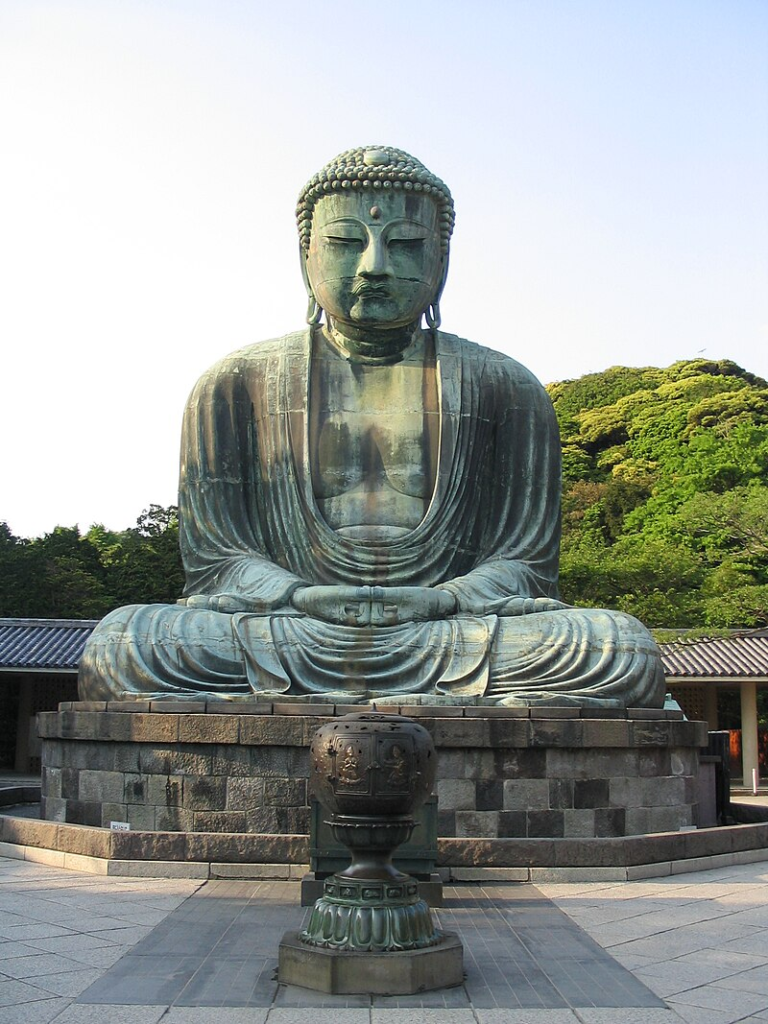
The Buddha’s Teachings:
In the Dhammapada, the Buddha states:
“People, driven by fear, go for refuge to many places.
But there is no shelter, no supreme refuge, in the world.
The wise, having realized this, find refuge in the Dharma.”
This reflects the idea that many live as though they have unlimited time, rather than acknowledging life’s uncertainty.
The Five Remembrances:
A traditional reflection in Buddhism encourages practitioners to acknowledge life’s realities, including the inevitability of aging, sickness, death, and separation from all that is dear.

Above: The wheel of dharma, a symbol of Buddhism
Marcus Aurelius, the Stoic philosopher and Roman Emperor, reflected often on mortality and the importance of keeping it in mind to live a virtuous and meaningful life.
One of his most notable quotes on this topic is:
“You could leave life right now.
Let that determine what you do and say and think.“
Meditations, Book 2, Chapter 11
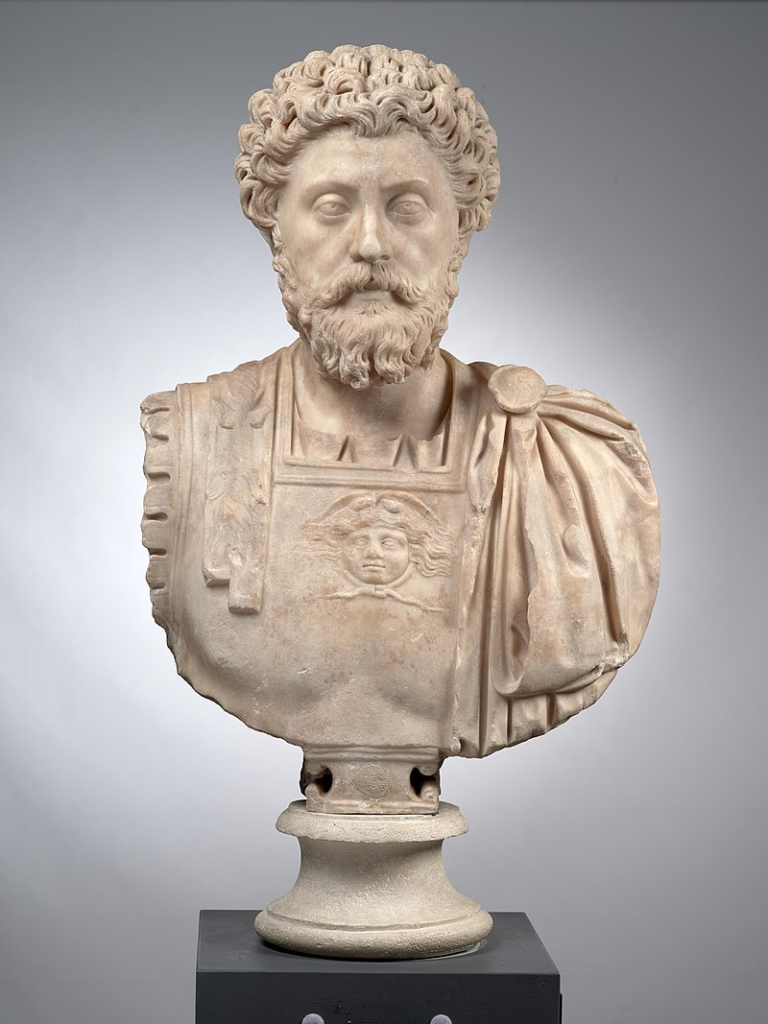
Above: Bust of the Roman emperor / philosopher Marcus Aurelius (121 – 180)
This idea is central to the Stoic practice of memento mori (remembering death), which encourages individuals to reflect on their mortality not to induce fear but to inspire a life lived with purpose and integrity, and to focus on what truly matters.
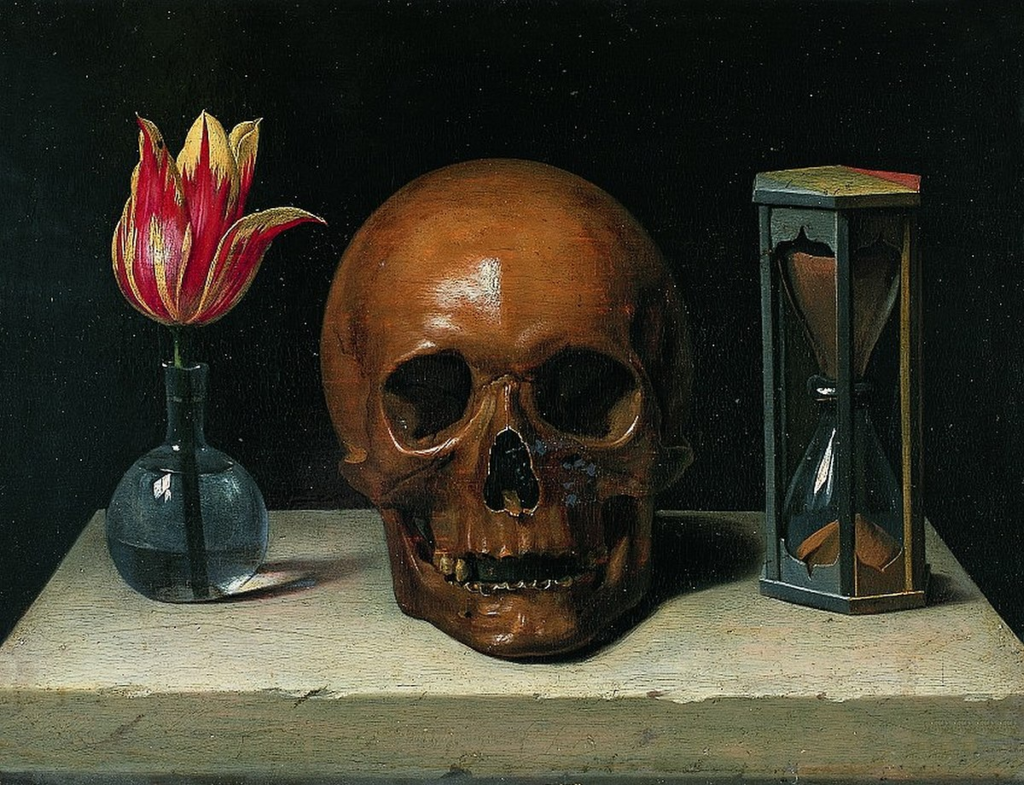
There was a merchant in Baghdad who sent his servant to the marketplace to buy provisions.
In a little while, the servant came back, white and trembling, and said:
“Master, just now when I was in the marketplace, I was jostled by a woman in the crowd, and when I turned, I saw it was Death that jostled me.
She looked at me and made a threatening gesture.
Now, lend me your horse, and I will ride away from this city and avoid my fate.
I will go to Samarra, and there Death will not find me.“
The merchant lent him his horse, and the servant mounted it and galloped away as fast as the horse could gallop.
Then the merchant went down to the marketplace and saw Death standing in the crowd.
He went to Death and said:
“Why did you make a threatening gesture to my servant when you saw him this morning?“
“That was not a threatening gesture,” Death said.
“It was only a start of surprise.
I was astonished to see him here in Baghdad, for I have an appointment with him tonight in Samarra.“
W. Somerset Maugham (1874 – 1965)

Many writers have explored the intricacies of friendship with deep insight.
Here are a few who have written profoundly about it:
1. Ralph Waldo Emerson
- Quote: “A friend is a person with whom I may be sincere. Before him I may think aloud.”
- Context: Emerson, in his essays and lectures, often explored the idea of friendship as a deep, mutual understanding where both parties can be their truest selves without pretension. For Emerson, friendship was closely tied to authenticity and the freedom to express one’s deepest thoughts.
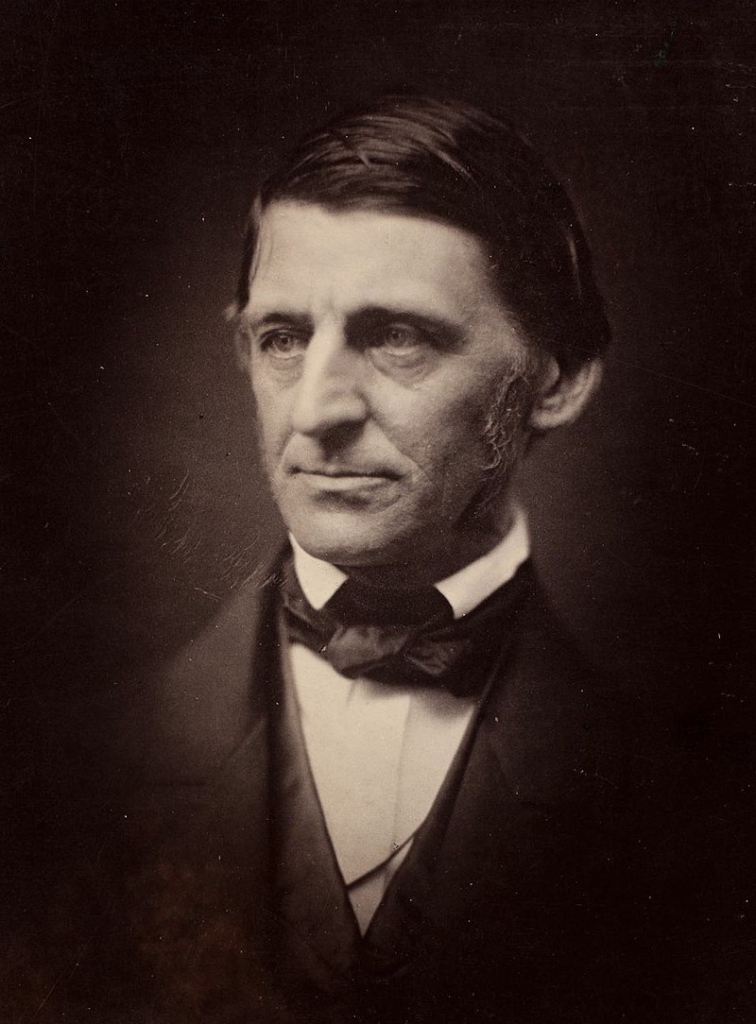
Above: American philosopher Ralph Waldo Emerson (1803 – 1882)
2. C.S. Lewis
- Quote: “Friendship is born at that moment when one person says to another, ‘What! You too? I thought I was the only one.’”
- Context: Lewis’s reflections on friendship, particularly in his book The Four Loves, explore how true friendship transcends romantic or familial love. For Lewis, the best friendships are those where individuals find a meeting of minds, where they are drawn together by shared interests, challenges, and experiences.

Above: English writer Clive Staples Lewis (1893 – 1963)
3. Khalil Gibran
- Quote: “Your friend is your needs answered. He is your field which you sow with love and reap with thanksgiving. And he is your board and your fireside.”
- Context: Gibran’s writing often touched on the spiritual and philosophical aspects of human relationships. In The Prophet, his reflections on friendship suggest that a friend is not just a companion but also a source of growth and fulfillment. True friendship, according to Gibran, is both a gift and a responsibility.

Above: Lebanese writer Khalil Gibran (1883 – 1931)
4. Friedrich Nietzsche
- Quote: “A friend should be a master at guessing and keeping still: you must not want to see everything.”
- Context: Nietzsche’s views on friendship are both challenging and illuminating. He argued that friendships based on mutual respect and understanding often involve a degree of silence and unspoken connection, where true companions allow each other space to grow and evolve.
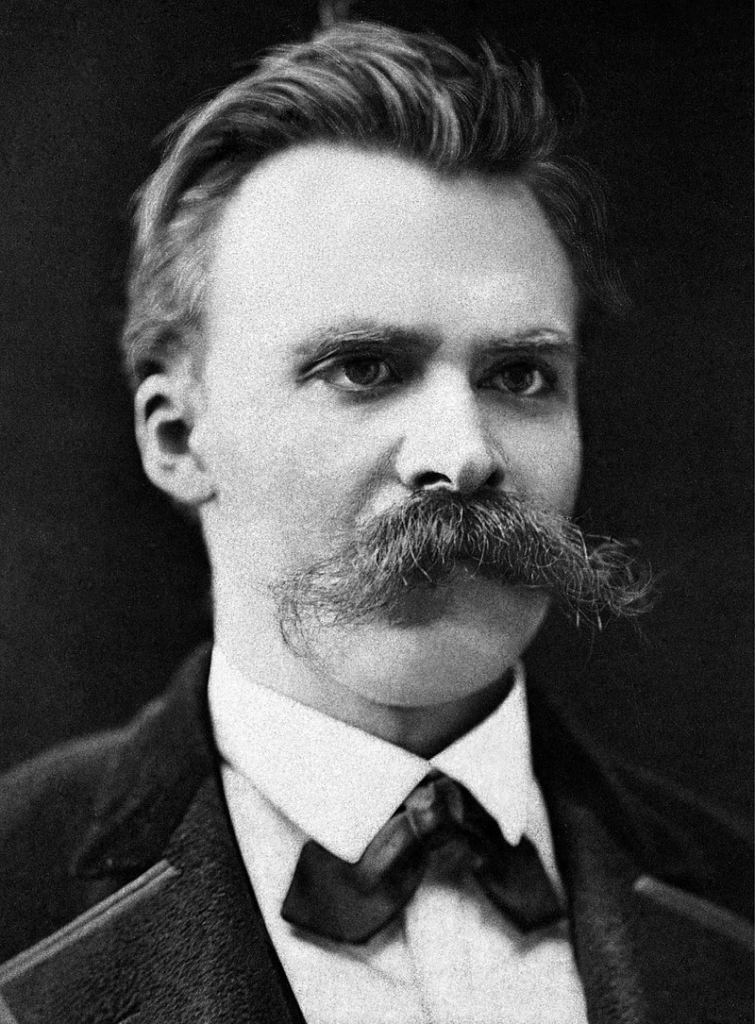
Above: German philosopher Friedrich Nietzsche (1844 – 1900)
5. Aristotle
- Quote: “What is a friend? A single soul dwelling in two bodies.”
- Context: Aristotle, in his Nicomachean Ethics, categorized friendship into three types: based on utility, pleasure, and virtue. True friendship, he argued, arises from shared values and the mutual desire to help each other achieve a virtuous life. His view on friendship is foundational in Western philosophy and highlights its moral and ethical dimensions.
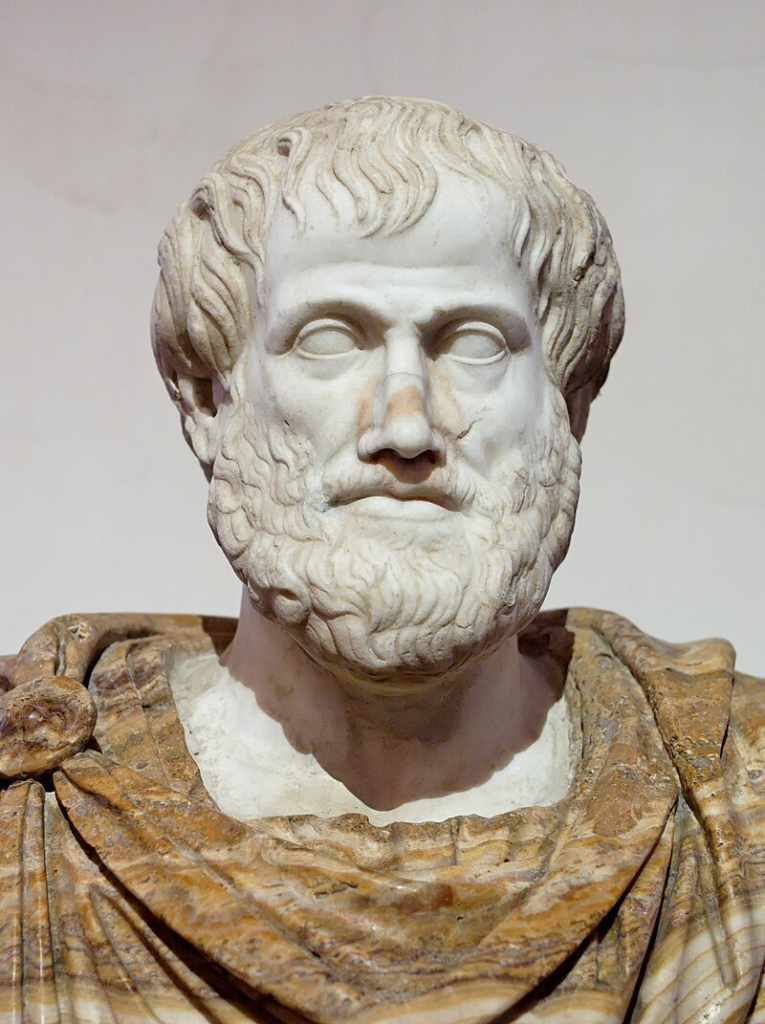
Above: Bust of Greek philosopher Aristotle (384 – 322 BC)
6. Maya Angelou
- Quote: “I don’t believe an accident of birth makes people sisters or brothers. It makes them siblings, gives them mutuality of parentage. Sisterhood and brotherhood are conditions people have to work at.”
- Context: Maya Angelou’s reflections on friendship often focus on the deep, human connection that transcends the surface. For Angelou, friendships are not easily given: They require effort, care and mutual respect to thrive and endure. Her work emphasizes the importance of vulnerability and love in building meaningful relationships.
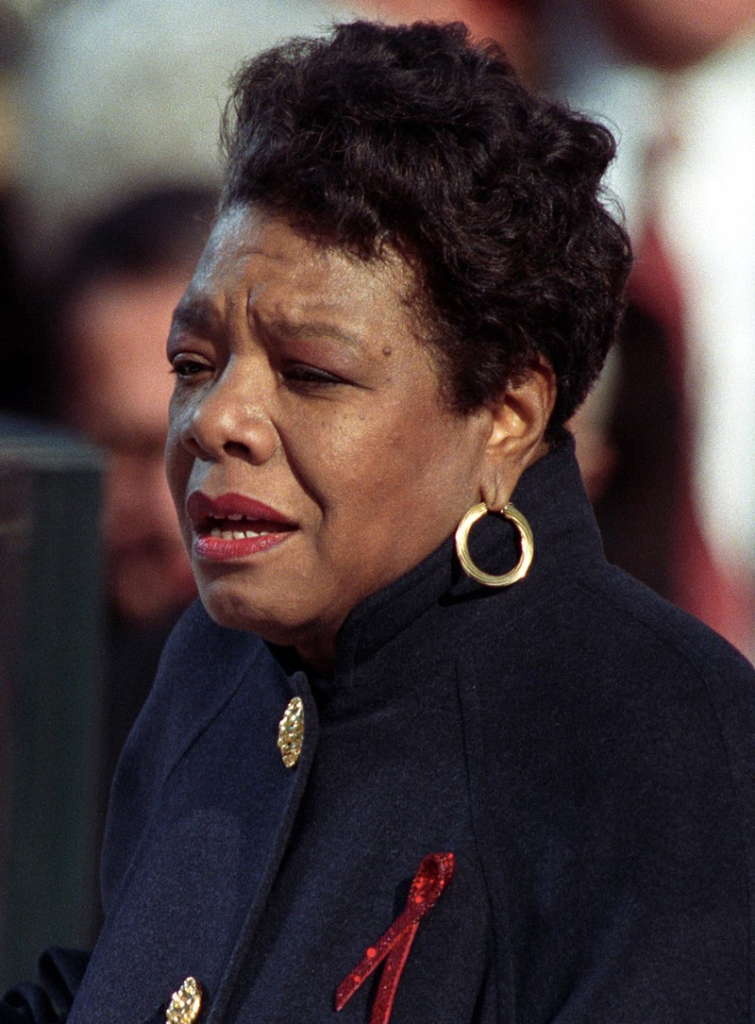
Above: American writer Maya Angelou (1928 – 2014)
7. Pablo Neruda
- Quote: “I can write the saddest poem of all tonight. Write, for example: ‘The night is shattered, and the blue stars shiver in the distance.’ And it was one of the most beautiful poems ever written. We can still understand why the deepest friendships are often those where words are unnecessary, and emotions flow freely.”
- Context: Neruda’s works about love, loss, and friendship transcend language and reach deep into the heart. He often combined the beauty of nature and the complexity of human emotions to explore what it means to share your life with another.

Above: Chilean writer Pablo Neruda (1904 – 1973)
8. Henry David Thoreau
- Quote: “I had three chairs in my house: one for solitude, two for friendship, three for society.”
- Context: Thoreau’s contemplative approach to life and relationships, especially in Walden, delves into the simplicity and beauty of deep, introspective friendships. For him, true friends are those who appreciate solitude as much as they do companionship, seeking out friendship without the distractions of society.
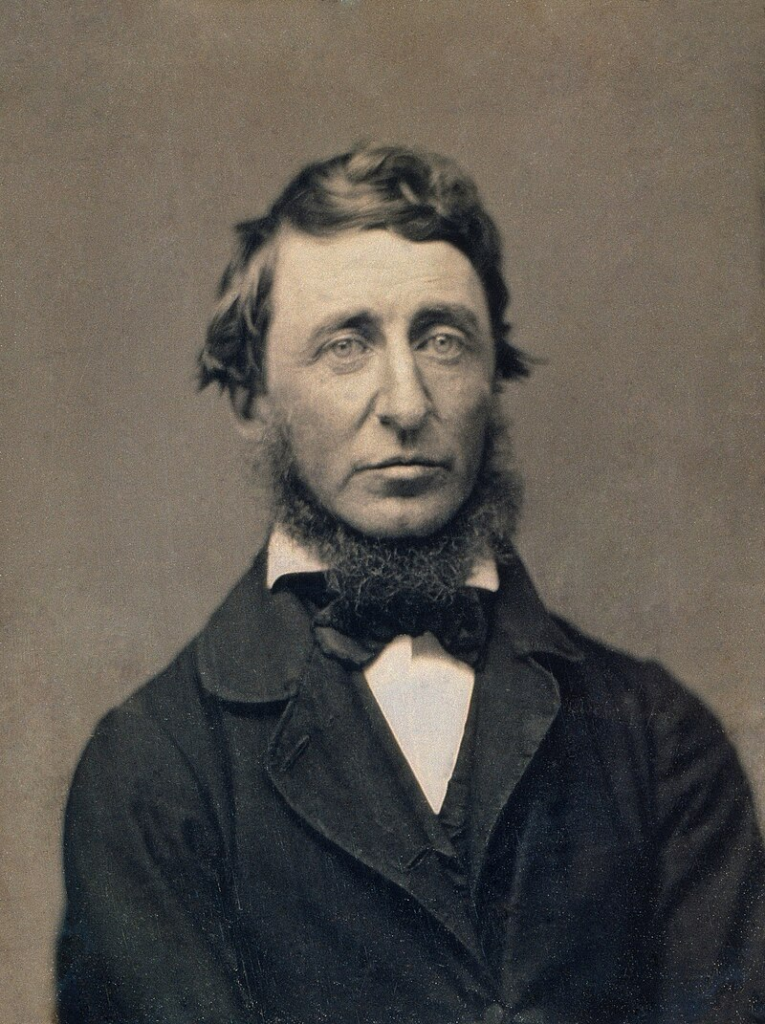
Above: American writer Henry David Thoreau (1817 – 1862)
9. Haruki Murakami
- Quote: “No matter how much it hurts now, someday you will look back and realize your struggles changed your life for the better.”
- Context: Murakami’s writing often explores the quiet depths of relationships, including friendship, where people’s connection transcends time and distance. His characters often engage in reflective, emotional exchanges, touching on the complexities of isolation and the bond that can exist between people even in the silence.

Above: Japanese writer Haruki Murakami
The responsibilities of friendship are often less discussed but are just as important as the joys of having friends.
Here are some perspectives on the responsibilities involved in friendship, shaped by the thoughts of various thinkers and writers:
1. Ralph Waldo Emerson
- Responsibility: “A friend is a person with whom I may be sincere.”
- Context: Emerson saw friendship as a realm of complete honesty. The responsibility of friendship, for him, is rooted in the ability to be truthful with one another. It requires vulnerability and trust, as friends must not only accept each other’s flaws but also call each other to a higher level of truthfulness and integrity.
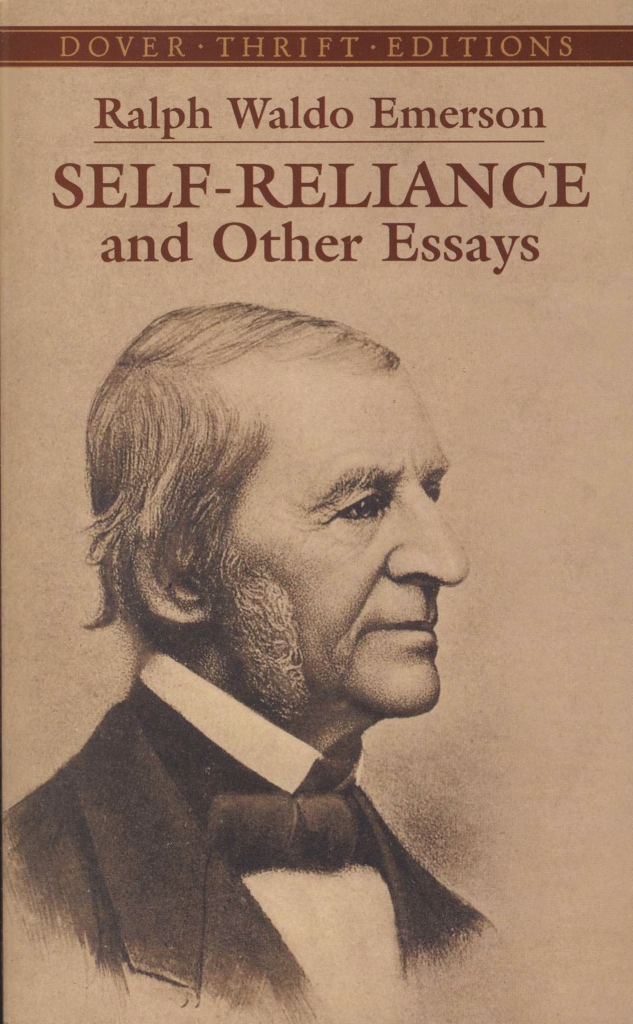
2. C.S. Lewis
- Responsibility: “Friendship is born at that moment when one person says to another, ‘What! You too? I thought I was the only one.’”
- Context: Lewis suggests that part of the responsibility in friendship is the mutual act of discovery and recognition of shared truths. Friends are responsible for nourishing the bond, not only by enjoying the similarities they share but also by accepting and learning from each other’s differences. This reciprocal care and effort are crucial to keeping a friendship alive.

3. Khalil Gibran
- Responsibility: “And let your best be for your friend. If they must know the ebb of your tide, let them know its flood also.”
- Context: For Gibran, the responsibility of friendship lies in offering the best of oneself — being present for your friend in both good and bad times. True friends are responsible for being there for each other, not just during times of joy, but in moments of hardship as well. This mutual presence and support are the bedrock of a deep friendship.

4. Aristotle
- Responsibility: “A friend is one soul in two bodies.”
- Context: Aristotle believed that friendship based on virtue carries great responsibility. Friends must act as moral compasses for each other, offering advice, guidance, and support when necessary. The responsibility in such friendships lies in helping each other become better people, cultivating virtues such as honesty, kindness, and integrity.

5. Maya Angelou
- Responsibility: “I don’t believe an accident of birth makes people sisters or brothers. It makes them siblings, gives them mutuality of parentage. Sisterhood and brotherhood are conditions people have to work at.”
- Context: Angelou’s insight emphasizes that friendships require ongoing effort. The responsibility of a friend is to actively cultivate the relationship, to invest time and energy into it, and to be there for one another when times get tough. Friendship, for Angelou, is about mutual care and active involvement in one another’s lives.
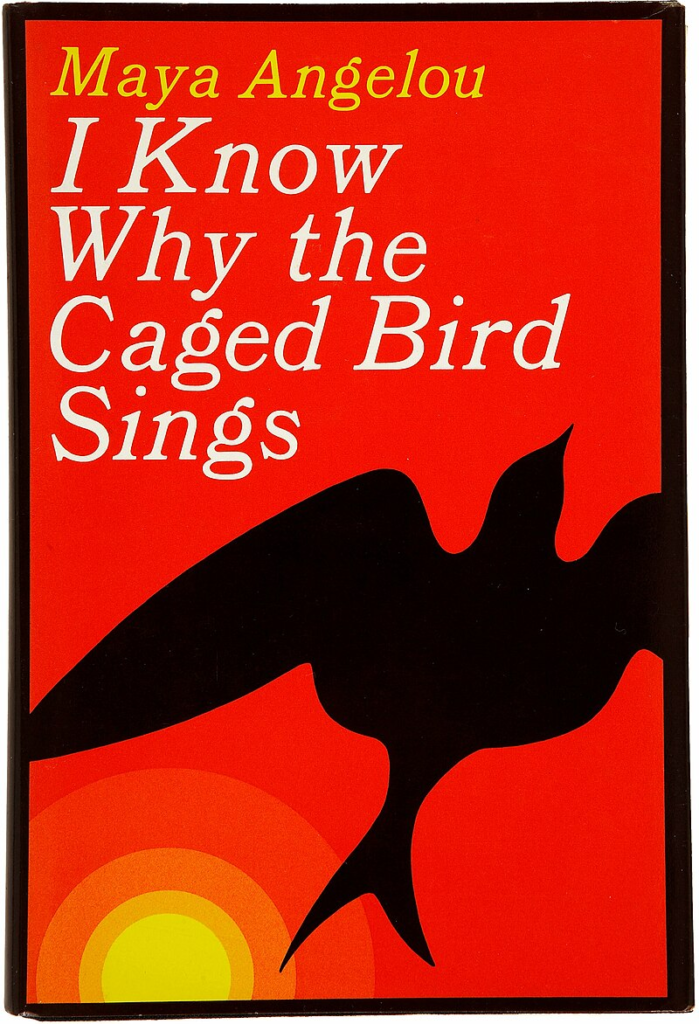
6. Henry David Thoreau
- Responsibility: “The friend is the one who is willing to walk beside you, silently when necessary, but always present when it counts.”
- Context: Thoreau viewed friendship as a quiet, contemplative responsibility. Sometimes, the responsibility in a friendship is to provide the space needed for reflection, while at other times, it is to stand firmly by a friend’s side. The duty of a friend is to support without imposing, to listen without judgment, and to share without expectation.
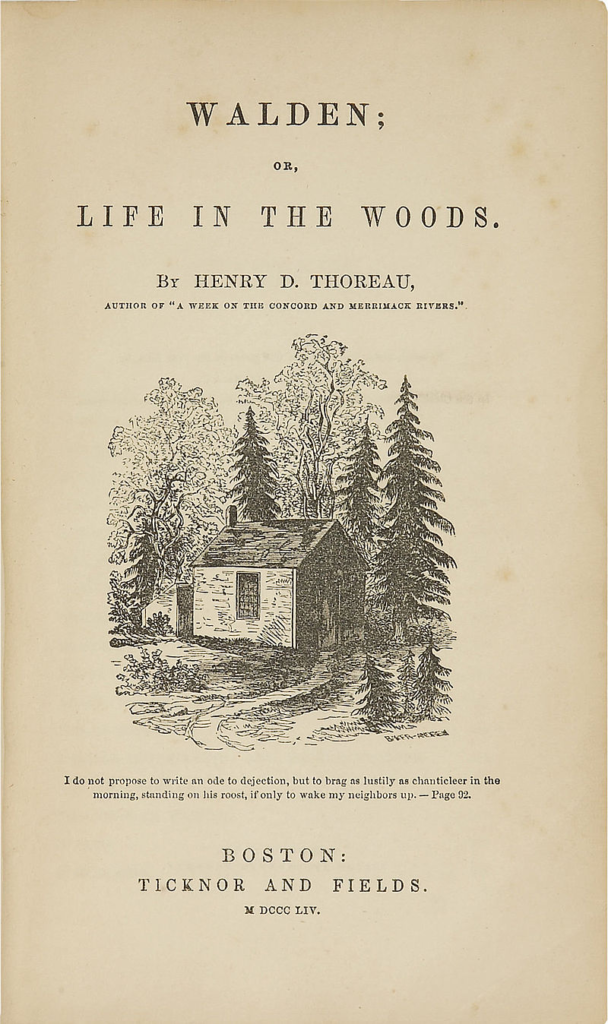
7. Friedrich Nietzsche
- Responsibility: “A friend is someone who gives you total freedom to be yourself.”
- Context: Nietzsche saw friendship as an open, dynamic exchange of ideas and experiences, but it also came with the responsibility of mutual respect for each other’s individuality. A friend should respect the other’s freedom, but they must also help guide one another through difficult truths and challenges, enabling growth and self-discovery.

8. Pablo Neruda
- Responsibility: “You can cut all the flowers, but you cannot keep spring from coming.”
- Context: Neruda’s approach to friendship often focuses on its permanence, suggesting that friends are always a part of your life, even if the relationship isn’t in bloom all the time. The responsibility of friendship, in this view, is to be unwavering in your care and to always make space for each other, even in times of distance or change.

This last piece of advice is the hardest for me, for it seems that modern life keeps human beings apart from one another.
Modern technology seems more designed for the purposes of work rather than the comfort of companionship.

Above: Charlie Chaplin, Modern Times (1936)
I return to one of my favorite writers and her opinions on the subject:
Insidious forces are marshalled against the time, space and will to walk and against the version of humanity that act embodies.
One force is the filling-up of what I think of as “the time in between“, the time of walking to or from a place, of meandering, of running errands.
That time has been deplored as a waste, reduced, and its remainder filled with earphones playing music and mobile phones relaying conversations.
The very ability to appreciate this uncluttered time, the uses of the useless, often seems to be evaporating, as does appreciation of being outside – including outside the familiar, mobile phone conversations seem to serve as a buffer against solitude, silence and encounters with the unknown.
The fight against this collapse of imagination and engagement may be as important as the battles for political freedom, because only by recuperating a sense of inherent power can we begin to resist both oppression and the erosion of the vital body in action.
Most industrial zone human beings need to rethink time, space and their own bodies before they will be equipped to be as urbane and as pedestrian (non-motorized) as their predecessors.
We have forgotten that there is an effective, ethical and deeply pleasurable way of navigating the terrain of our daily lives that resists the industrialization of time and space and the acceleration of daily life.
It starts with a step and then another step and then another that adds up like taps on a drum to a rhythm, the rhythm of walking.
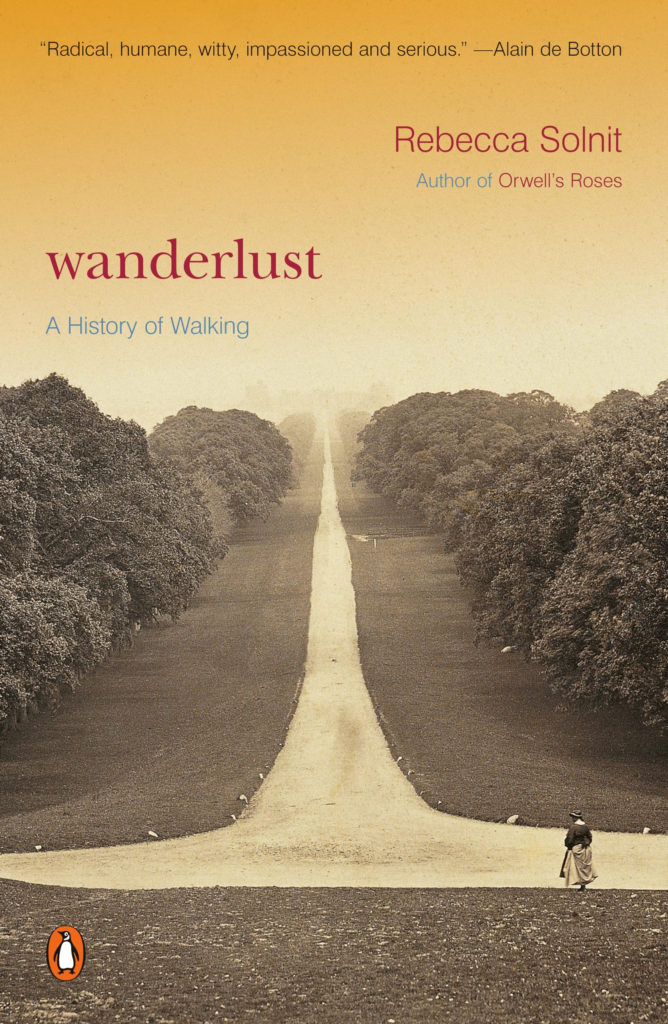
We live in the shadow of the bomb and though everyone protests that it would be entirely illogical for a nuclear war to ever occur, the reality is that humans are often fallible, unreliable and foolish.
Sometimes nuclear weapons seem like nothing more than intangible budget figures, waste disposal minutiae, potential casualty numbers lost in a fog of bureaucratic abstraction.
No one thinks about the devastation of real bodies and real places.
We see photos of weapons of mass destruction being exploded in beautifully stark landscapes and think nothing about the environmental damage that ravages the Earth.
Most of the survivors of Hiroshima and Nagasaki have died, while Buddhist monks and Christian priests and nuns, veterans turned pacifists, renegade physicists and activists protest to the deaf whose easiest ploy is to simply marginalize those who oppose them.

Beyond the military-industrial complex are the actualities of places, of sights, of actions, of sensations and emotions.
All that is offered humanity beyond its gates are handcuffs and thorns, dust and heat, radiation and regiment.
They cannot see the spectacle of light, the freedom of expression nor the stirring splendor of love.
Violence continues to write human history.

Human lives are ignored by industry ever greedy for productivity and the wealth it generates to the fortunate few.
We are disposable resources who foolishly believe that our lives have meaning to the System which we defend as civilized.
I don’t know if protest works, for the willingly blind do not see the errors of their ways.
We must resist but that resistance cannot counter the power of a gun directly.

I think of Thoreau.
He was a poet of nature and a critic of society.
His famous act of civil disobedience was passive – a refusal to pay taxes to support war and slavery and an acceptance of jail that ensued.
His resistance did not overlap directly with his involvement in exploring and interpreting the local landscape, but in the life that he led the poetry of nature and the criticism of society were united.
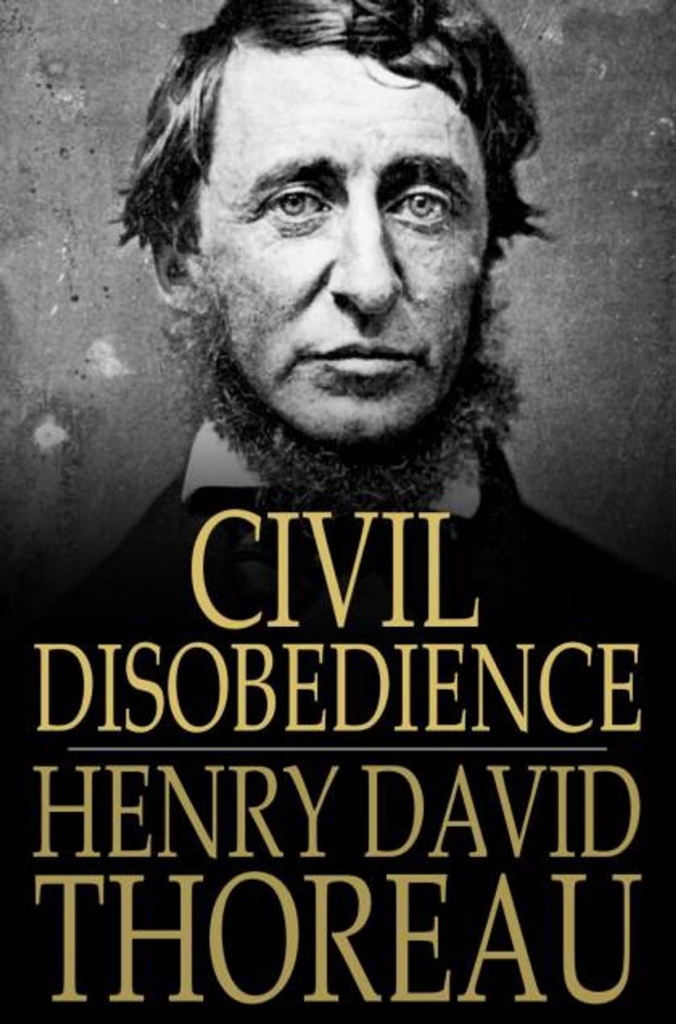
Many people nowadays live in a series of interiors disconnected from one another – home, car, gym, workplace, shops.
We live in interiors built up against the whole world rather than embracing the world that makes living worthwhile.
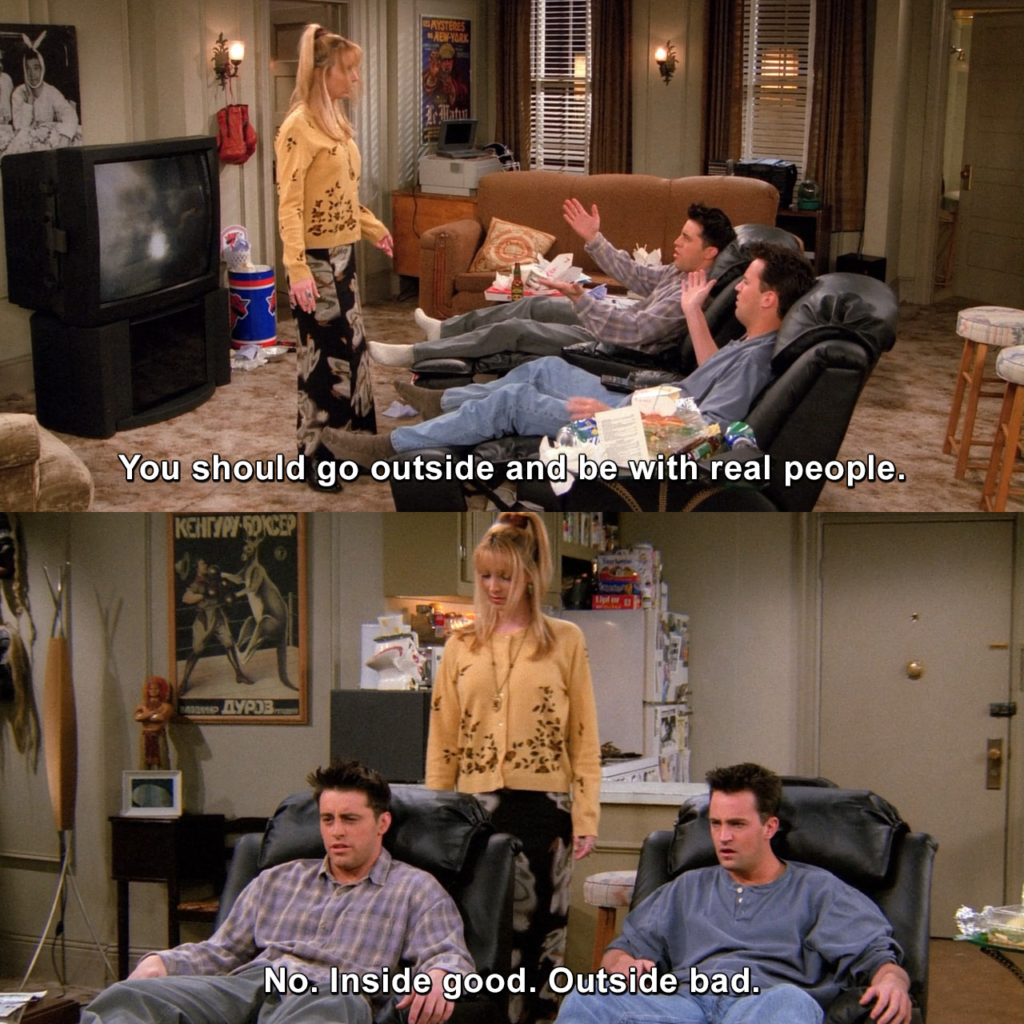
We are all so busy making a living that we have forgotten how to live.
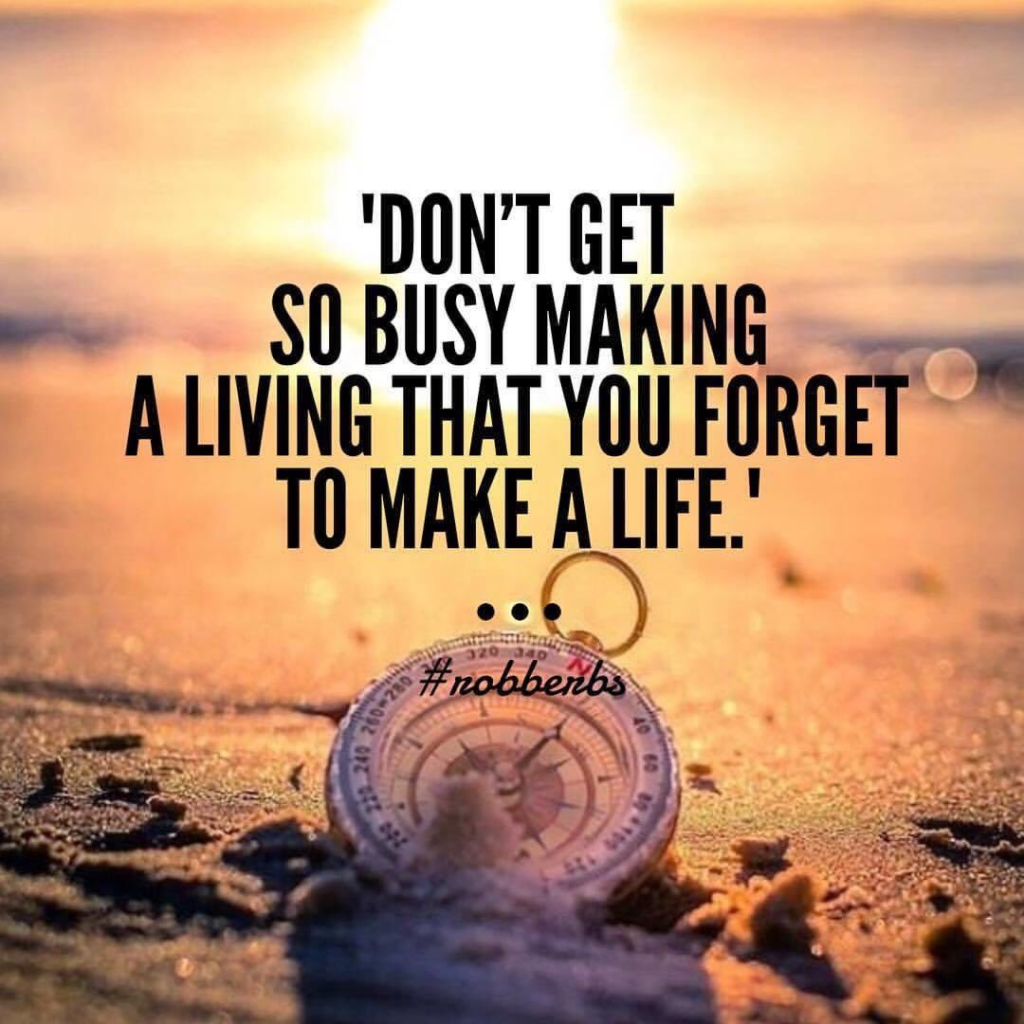
I have friends with whom I once worked, here in Eskişehir, who never seem to have time to spend with me.

Above: Sazova Park, Eskişehir, Türkiye
One complains that work dominates him, seemingly 24/7.

Another complains that the demands of an academic program of study leaves him no time for frivolities such as friendship.

What is the point of life if all that it entails is “simply” to make a living, either at present or potentially?
We spend 80% of our adult lives working for a fortunate few who don’t care about the life we sacrifice for their profit.

We surround ourselves with quantity, forgetting that this is not the same as quality.

We waste our lives believing that we will have time in the future for embracing life in its meaningful totality, only to be cheated by Death arriving before we were ready for its visit.

I am once again reminded of a sad story that the psychologist Steve Biddulph relates in his book Manhood:
Two farmers stand in the dusty yard of a property.
One is a neighbor, come to say goodbye.
The other is watching as the last of his furniture is packed onto a truck.
The farm looks bare – stock gone, machinery sold.
Two teenagers stand by the car.
The wife sits inside it, eyes averted.

The two men have farmed alongside each other for 30 years, fought bushfires, driven through the night with injured children, drunk gallons of black tea and cared for each other’s wives and children of their one.
They have shared good times and bad.
Now, one is leaving, bankrupt.
He will go to live in the city, where his wife will support them by cleaning motels.
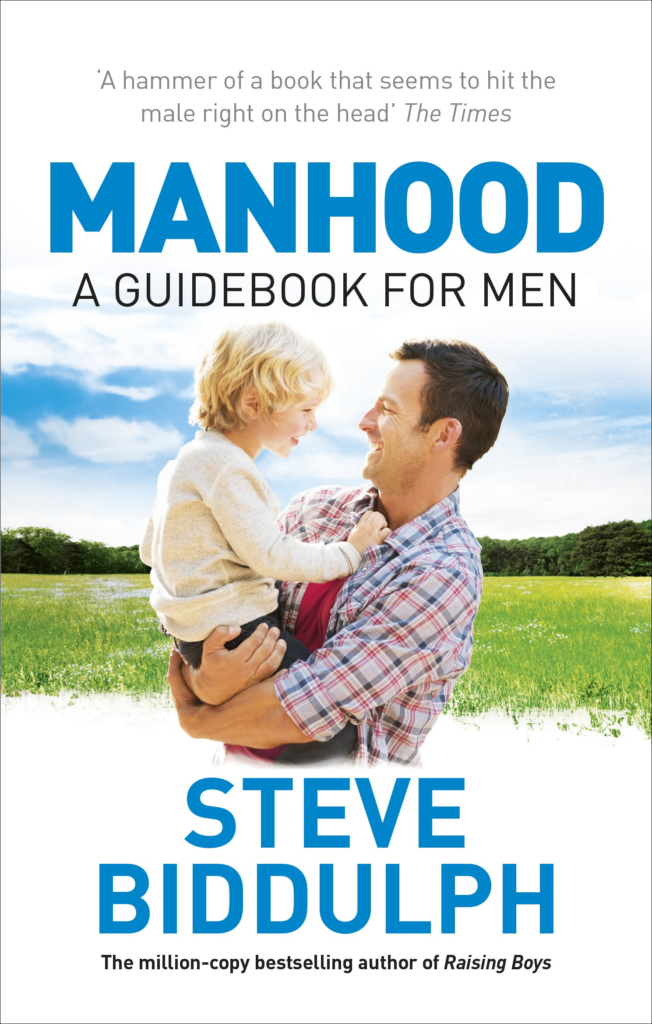
“Well“, says one. “I’ll be off then.“
“Yeah“, says the other. “Thanks for coming over.“
“Look us up sometime.”, says one.
“Yeah, I reckon.“, says the other.

They climb into their vehicles and leave.
While their wives will correspond for years to come, these men will never exchange words again.
So much unspoken.
So much that would help the healing to take place from this terrible turn of events.
What pain would flow out if one was to say:
“Listen, you’ve been the best friend a man could want.“, looking the other straight in the eye as he said it.
Or if they had spent a long evening together with their wives, full of “remember when” punctuated with tears and easing laughter.
If, instead of standing stiff-armed and choked, they could have had a long strong hug, from which to draw strength and assurance, as they faced the hardship their futures would bring.
The farmer leaving the land will not find any opportunity for any of these supports, comforts or appreciations.
He will be a massive risk for suicide, alcoholism, cancer or accident, as he twists up inside to suppress the emotions his body feels.

Too often men don’t have friends.
We have a straitjacket agreement on which subjects we never discuss.
A subtle and elaborate code governs the humor, the put-downs, the ways in which serious feeling or vulnerability is deflected.
All this is well known and often written about, but is never spoken between men.
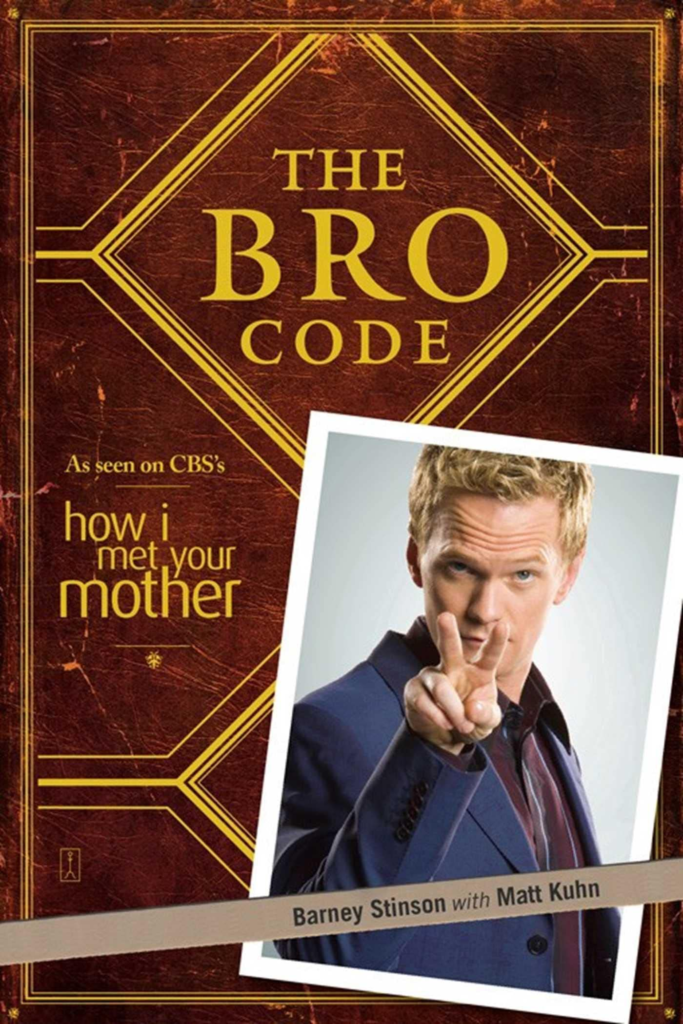
Men have deluded themselves into thinking that masculinity must be suffered in silence and solitude.
We thrive on competition, distancing ourselves from any form of intimacy that might reveal the fragility of being merely human.
We could be closer than brothers with good things to give and receive, but that would be too risky for that may entail an exposure of emotions that we never learned to deal with.
Half of humanity has lost its enjoyment of life.
The other half grows impatient with disappointment in the first half.

Men so often feel the need to prove that they are men.
Women wouldn’t entertain this ridiculous notion of proving that they are women.

Friends offer enormous comfort.
They help to structure your time.
They show you that you belong and can be cared about.
A man who lacks a network of friends is seriously impaired from living life to its fullest.
Friends alleviate the overdependence on a romantic partner for every emotional need.

Millions of women complain about their male partner’s lack of feeling, his woodenness.
Men themselves often feel numb and confused about what they really want.
But what if men’s inarticulateness simply comes from a lack of sharing opportunities with other men?
If men talked to each other more, perhaps they would understand themselves better.
Perhaps they then would have more to say to their lady partners.
Men have feelings, even if they are denied or inarticulate.

Four friends arrive seconds after a serious traffic accident.
They stopped traffic, pulled people out of vehicles, staunched serious bleeding and comforted the family of two people who had been killed outright.
Three hours passed before it was all over.

Four men controlled their feelings in order to save lives in freeway carnage.
Controlling one’s feelings is a very valuable part of being male.
It has great survival value.
All women, deep down, count on it.
Being able to also let go of those feelings when the time is right is another matter entirely.

Men experience loss and shame – rifts with fathers, painful experiences in marriage and parenthood, health issues.
There is a pressure inside men that has been building up for a very long time.
It isn’t complicated, because men are essentially uncomplicated.
We simply need to express how goes our lives.
We are restricted by our reserve, decorous in our denial.
Tense and numb, senseless and dumb.
Failing to feel leads to a shutdown in the full spectrum of emotions – anger and fear, warmth and love.
This passion is what many men have lost.
This passion is what we stand to gain.
Men need to grieve and to experience joy.
Men need to allow themselves to feel, ready to love and be loved.

I miss my male friends.
This does not diminish the importance of women in my life, but men understand one another in a way that women cannot understand them.
The same can be said in regards to women and their female friendships.

Both genders should engage in face-to-face conversations with their own gender and the opposite gender rather than interaction through gadgetry.
As wonderful an aide as AI is, AI should not serve as a replacement for interaction with other human beings.

Certainly, face-to-face conversation may be more of a challenge than remote relations.
Perhaps AI feels less judgmental and problematic than human interaction.
But it is only through face-to-face with other people can we truly discover the joy of being fully alive, fully human.

I miss my male friends.
I try to be patient with their decisions, with the paths of self-development that they have chosen for themselves.
But there are moments when I am selfish.

I am human.
I miss my friends.
I leave the door open.
But this is a time limited offer.
We do not know what tomorrow brings.
May it not be too late to love and be loved.

Sources
Steve Biddulph, Manhood
Dost, Chat GPT
Google Images
Shirley Hudson, Real World English
Rebecca Solnit, Wanderlust
Wikipedia